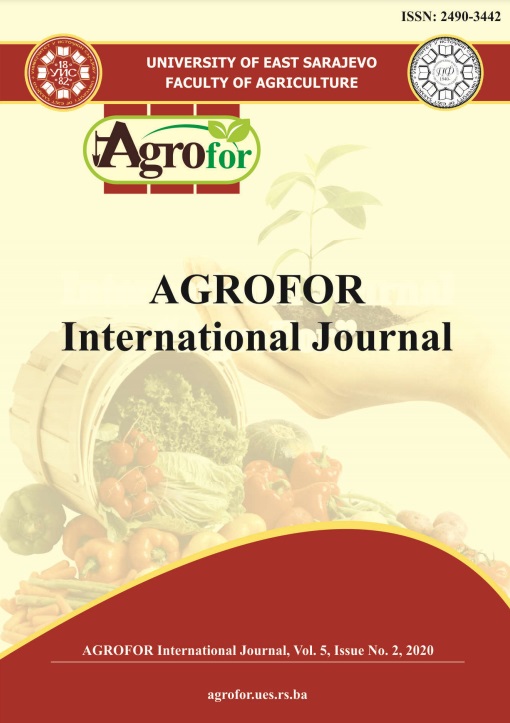EVALUATION OF SOIL QUALITY PARAMETERS IN SILVOARABLE SYSTEMS
DOI:
https://doi.org/10.7251/AGRENG2002107KAbstract
Agroforestry is considered a sustainable cultivating methodology in comparison to
intensified and one-dimension agriculture, resulting in higher yields, socioeconomic
benefits and environmental protection as well. The silvoarable systems
constitute classification of the agroforestry systems that involve crops and trees in
the same spatiotemporal scales. One of the most important benefits related to the
productivity of silvoarable systems is the maintenance or improvement of soil
quality. In the present study, qualitative characteristics of soils in traditional
silvoarable systems in the area of Mouzaki, central Greece, were studied through
the determination of basic soil parameters, including the organic matter content,
total nitrogen, exchangeable potassium and available phosphorus. All systems
under investigation were characterised as boundary hedgerows (livefences). The
trees in the hedgerows may include mulberry, wild pear, wild walnut, and other
wild tree types typical of the Mouzaki landscape, whereas the understorey crops
were both arable and horticultural. Within the research areas, the effect of the trees
on the concentration of the selected soil parameters was investigated. Soil samples
were collected in all systems at two depths (0-30 and 30-60 cm) and at three
distances from the selected trees, corresponding to half, twice, triple or quadruple
the tree canopy width. The results of the research provided evidence of C
sequestration in all soils under investigation, thus indicating the positive effect of
agroforestry systems on the environment.

